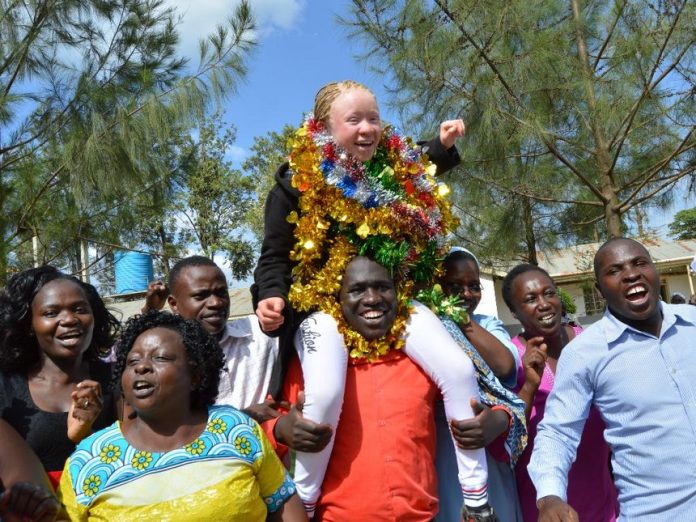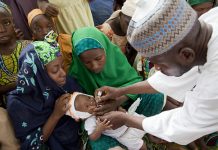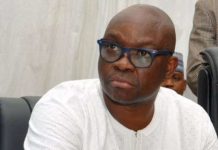Very often, Africans look down on people living with one form of disability or the other with either pity or contempt. Albinism, which is not really a disability, attracts unusual disdain in Sub-Saharan Africa. But the walls are gradually coming down
The top Kenyan CPE exam candidate, Goldalyn Kakuya, is not your regular type of albino. The 14-year-old girl from Kakamega County, who scored 455 out of 500 marks, will not only be remembered for her academic excellence, but also for the instrumental role of raising awareness about albinism.
As experts say albinism is a genetic condition characterised by lack of the pigment melanin in the skin, hair and eyes. It is a greatly misunderstood condition. This ignorance has given way to dangerous myths that engender stigmatization and social exclusion of people with albinism.
In some African countries, many children with albinism are almost counted as blind and made to attend schools for the blind, despite the fact that with simple medical assistance they can attend regular schools.
But Kenya is lucky to have found a renowned eye specialist, Dr. Choksey Prabha, who has been working in the country for the past three decades.
In no time, she began offering children with albinism free eye check-ups, glasses and sunscreen. Her assistance has transformed the lives of more than one thousand children with albinism by allowing them to attend normal schools. Goldalyn is one of the beneficiaries of Dr. Prabha’s work.
According to the expert’s research, over eighty per cent of children with albinism attend schools for the visually impaired at the primary school level.
This is despite the fact that with prescription glasses and a little assistance with large type text and high contrast written materials, all children with albinism can attend normal schools.
As part of her work with people with albinism, she established the Dr. Choksey Albinism Foundation in 2014 for eleven young women with albinism. The foundation has allowed her to reach more children. Dr. Prabha’s expert understanding of albinism, as well as her passion and integrity, informed the decision of some notable organizations to partner with her on a long-term basis.
Through this partnership, her foundation has sponsored seventy students living with albinism, enabling them to pursue their primary and secondary school education seamlessly.


















